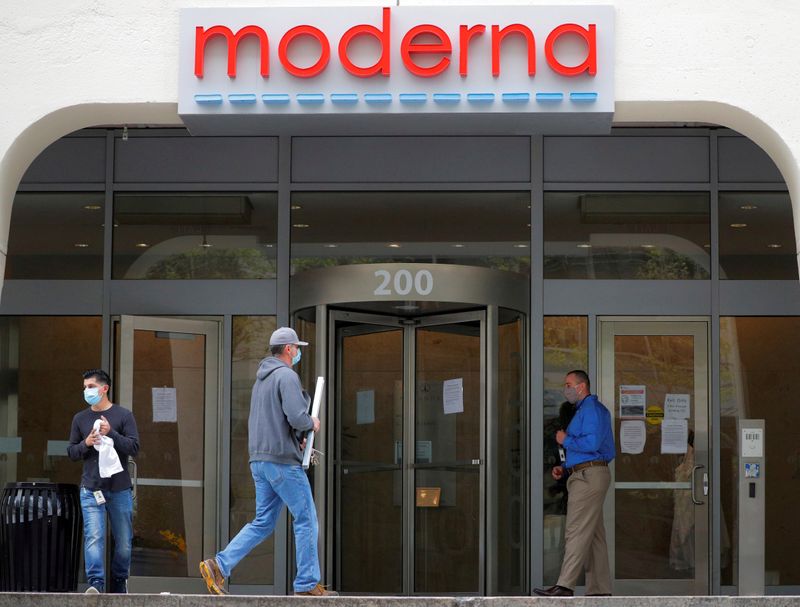(Reuters) - Moderna (NASDAQ:MRNA) Inc said on Sunday it has received an additional $472 million from the U.S. government's Biomedical Advanced Research and Development Authority (BARDA) to support development of its novel coronavirus vaccine.
The U.S.-based drug maker said the additional funding will support its late-stage clinical development including the expanded Phase 3 study of Moderna's vaccine candidate.
In April, Moderna had received $483 million from the U.S. federal agency that funds disease-fighting technology, when the experimental vaccine was in an early-stage trial conducted by the U.S. National Institutes of Health.
"Encouraged by the Phase 1 data, we believe that our mRNA vaccine may aid in addressing the COVID-19 pandemic and preventing future outbreaks," Chief Executive Officer Stéphane Bancel said in a press release.
BARDA's total funding for the experimental vaccine of Moderna, the first in the United States to begin human trials of a coronavirus vaccine, is now about $955 million.
The vaccine uses synthetic messenger RNA (mRNA) to inoculate against the coronavirus. Such treatments help the body immunize against a virus and can potentially be developed and manufactured more quickly than traditional vaccines.
A Phase 3 study, conducted in collaboration with the National Institute of Allergy and Infectious Diseases, will begin on July 27 and involve about 30,000 participants, according to the company.
Moderna said it remains on track to be able to deliver about 500 million doses per year, and possibly up to 1 billion doses per year, beginning in 2021.
The announcement about further funding came two days after the drug developer said its formula used in developing the vaccine was not covered under patents owned by Arbutus Biopharma (NASDAQ:ABUS)

Pfizer Inc (NYSE:PFE), Novavax (NASDAQ:NVAX) Inc, Britian's AstraZeneca (NYSE:AZN) Plc are other few drug makers that received funding from BARDA for coronavirus vaccine development.